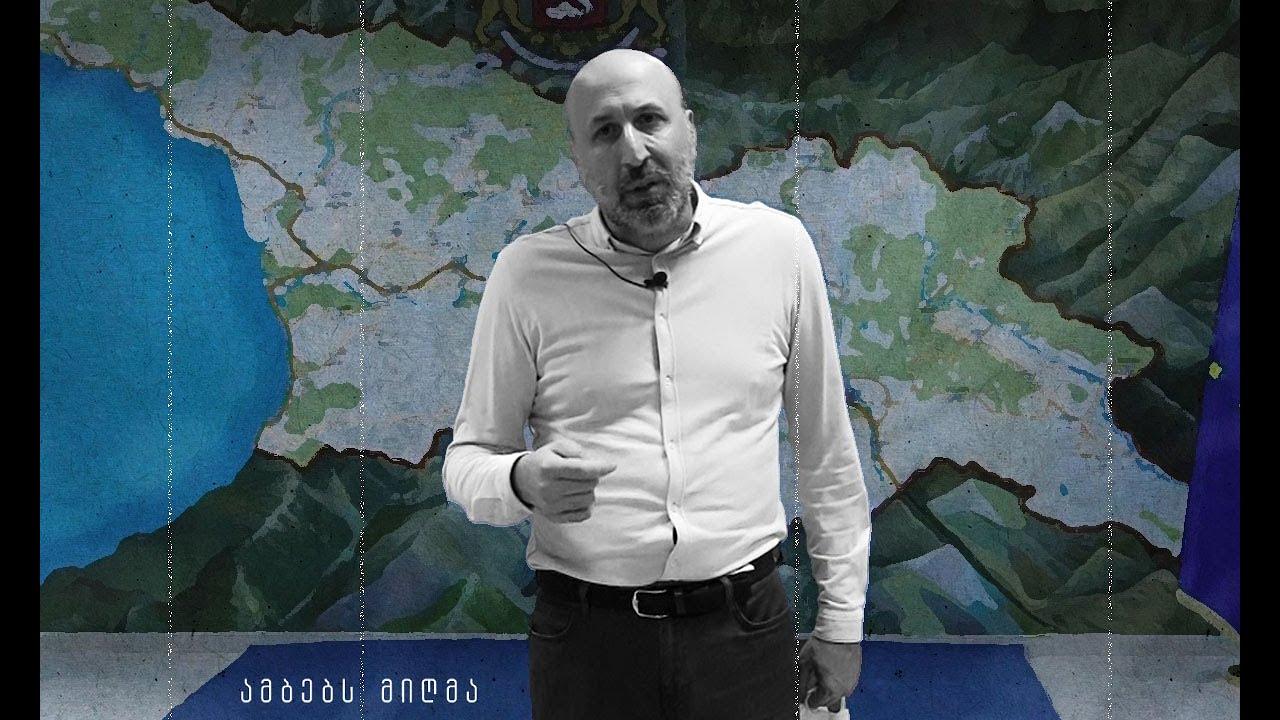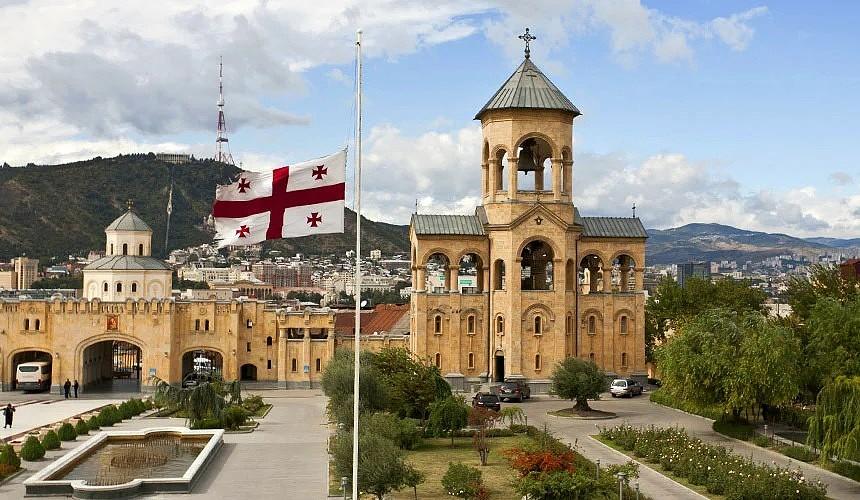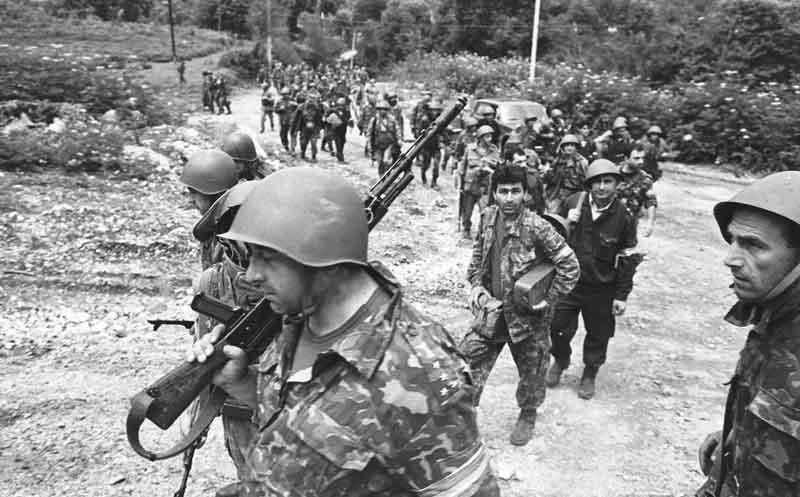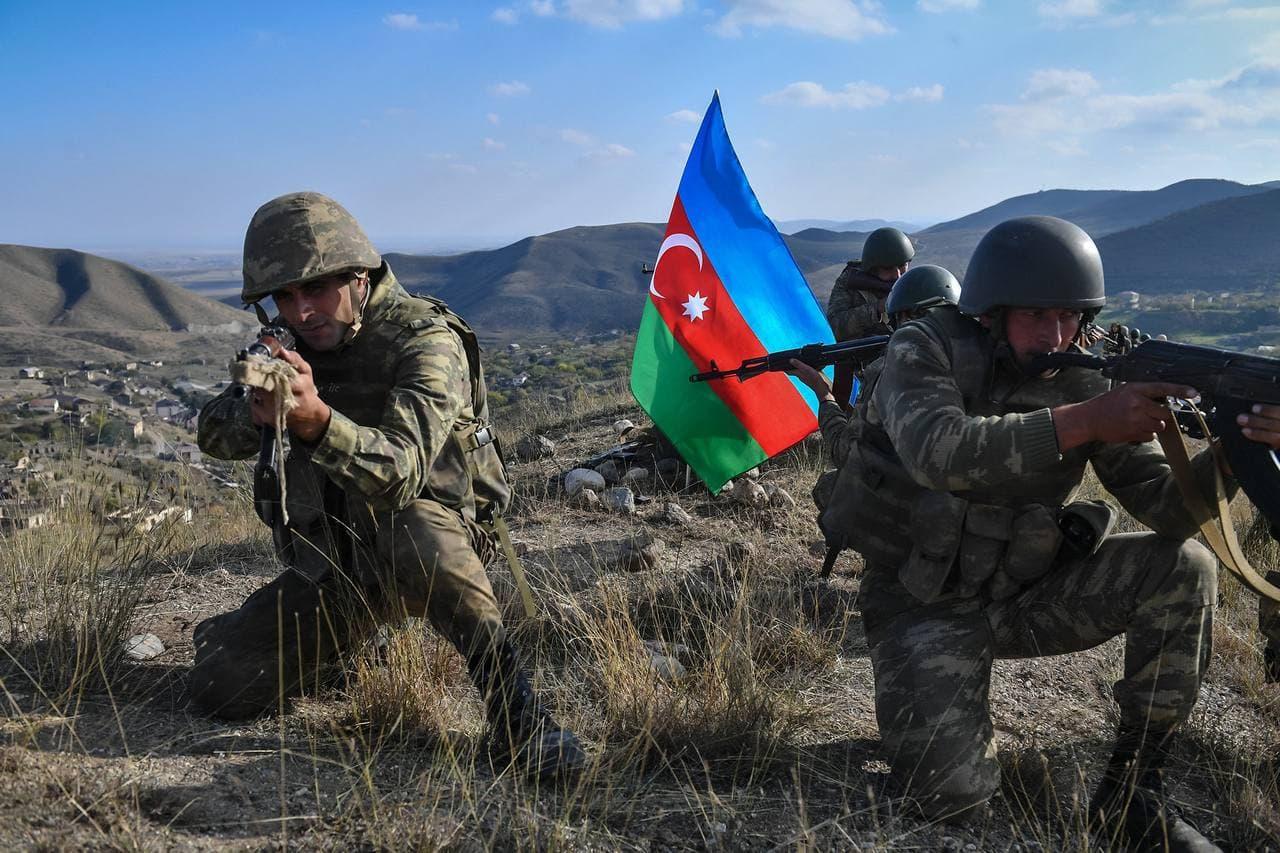Economy to be one of foundations of final solution to Armenia-Azerbaijan confrontation Caliber.Az’s interview with Georgian analyst
Caliber.Az had an interview with a Georgian analyst, an expert in conflictology, a former active participant in Georgia-Abkhazia negotiations, former head of the department of the Office of the State Minister of Georgia for Conflict Resolution Issues, director of the Center for Humanitarian Programs at Sukhumi State University Levan Geradze.

- You were engaged in the settlement of conflicts in Georgia in the past. What measures is the Georgian government taking today to restore the country's territorial integrity?
- Georgia adheres to the strategy of peaceful settlement of the conflict, an important part of which is its transformation, reconciliation, and improvement of relations between the opposing parties. This strategy was developed in 2010 and since then it has covered all possible elements and tools for the final peaceful settlement without formal changing. The “Step to a Peaceful Future” program, which envisages the creation of better conditions for trade between the sides and an opportunity of getting an education, was developed a couple of years ago as part of this strategy. All this is done for the population legitimately residing in the temporarily occupied territories.
The healthcare program, which is also aimed at the population legitimately residing in the occupied territories, has been valid for more than 13 years. A wide range of medical services is rendered to people who live in Abkhazia and the Tskhinvali region free of charge. All these programs are quite successful and this has a great impact on the relations between the population of the two sides.
Of course, this is not enough, it is very important to develop the political component, which, despite the efforts of both the Georgian side and the international community, has not been improved yet.
Moreover, the war in Ukraine does not contribute to improving the situation, however, on the other hand, when there are problems, this opens up additional opportunities for cooperation and finding common approaches to solving problems.
As for the public level, the situation is not rather good in this sphere, however, the non-governmental sector has more freedom for interaction and cooperation.
We have been actively promoting the idea of university diplomacy recently, which envisages the union of two such phenomena as diplomacy and university (as a scientific and educational center around which modern European culture was formed rather than a place for learning and conducting any scientific research). The combination of these two very important phenomena can become an additional and very effective platform for the process of peaceful settlement of the conflict to be more successful and lead to better results.
Georgian diplomacy must do all its best to balance the negative role in our region created by our neighbor in international organizations, legal institutions, and capitals of partner countries. This is a very complex process that requires an integrated approach. This issue cannot be resolved through a straightforward solution. It depends on many things, both on our relations with the society that is today in the occupied territory, and on our relations with Russia, the West, separately with Europe, US. The process of our Euro-Atlantic integration, the liberalization of visas, and our social and economic situation are also important, a lot depends on this.

- Nevertheless, Georgia thinks that territorial integrity can be restored only by force. Is public opinion sufficiently shaped in terms of peace policy?
- Peacekeeping policy does not need shaping of public opinion. I mean ordinary citizens. The active part of society, the non-governmental sector, people who shape public opinion, and first of all, the authorities must be greatly mobilized. This is political will for the process to proceed in the most peaceful atmosphere. Success in the current conditions is unattainable without it.
- The war with the Ossetians and Abkhazians was very bloody, we all remember the terrible events in Sukhumi. Will Georgia be able to forgive this?
- We did not consider the war in the Tskhinvali region as a war between Ossetians and Abkhazians. It was a war for Georgia, its territorial integrity, its future, sovereignty, and independence.
We do not consider ethnic Abkhazians and Ossetians as enemies. The whole problem was in the policy pursued by certain separatist circles, and in particular, the forces leading them. We must better understand the whole situation and prevent its reoccurrence. During this period, we have accumulated the corresponding resources to find common approaches. We still have some optimism about this issue.
- What are the ways of reconciliation with the Abkhazians and Ossetians?
- Among the ways of reconciliation are a peaceful dialogue, the transformation of the conflict, a change in the attitude of their population towards Georgia, as well as painstaking daily work with people who make decisions, who must make a choice regarding their future. It is not an easy job, however, there is no other way.
- What lessons did the Georgian and Abkhazian societies draw as a result of this war?
- Of course, some lessons were drawn, however, I would like to tell you about myself. I learned that a bad peace is better than a good quarrel, and that war is the worst state a person can be in. I think that we must avoid war. Unfortunately, our national projects do not coincide. This is especially obvious in relation to the Tskhinvali region, in which the situation is difficult, not to mention those internally displaced people who are waiting for their return to their native lands.
All this happens because we have different national projects and a different vision of our future. A majority of the Georgian population links their future with European institutions and other values. The population in the occupied territories adheres to a vector that is actively promoting a completely different way of development, and it is clear why people think so.
- What is the difference between the Abkhazian and Tskhinvali problems?
- The Abkhazian national project envisages the creation of an independent state, while the Tskhinvali project envisages joining Russia. Of course, none of them is acceptable to me because as a person born and grew up in Sukhumi, I am waiting for when all internally displaced people will return to their native lands in accordance with the UN principles.

- The whole generation grew up after this war. What can Georgians and Abkhazians talk about when they meet? Will they still hate each other as in the past?
- I have never felt any hatred towards myself. No matter how strange it may sound, I did not feel that we had enmity based on hostility towards each other either now or in the past and even during the hostilities.
- Did you take part in hostilities?
I did not take part in hostilities, I was just there. When you see the whole situation, it is impossible not to think about the causes and ways out of the situation. Of course, the population of the occupied territories is ambivalent about Georgia. I am completely ambivalent about the pseudo-state that they are trying to create in Abkhazia or in the Tskhinvali region.
- What should Georgians and Abkhazians think about?
- They should think about many things. First of all, we ourselves must make decisions and pay less attention to those who stand behind us. We should realize what our interests are and act proceeding from our interests and the interests of our future generations. We must clearly assess what our prospects are and not to make decisions based on emotions, some past moments. Of course, we should thoroughly learn from the past situation to know what mistakes have been made and what mistakes we may make in the future. However, we must proceed from the possibilities and the prospects that the modern world offers us, which are very actively and rapidly changing. I'm just sure that, unfortunately, we don't take advantage of all the opportunities that this open world provides us.
- As opposed to your generation, having relations with those living in the occupied territories, the new Georgian generation has no idea and the people living on those lands are unfamiliar to the new generation. May the topic of restoring territorial integrity lose its relevance over time?
- I think these questions will remain relevant. Unfortunately, the majority of the population will link the entire Abkhaz side to this conflict, rather than the separatists and those who stood behind them. This will create a serious problem. The issue is that radical steps may become more desirable for the new generation, having no positive experience of relations with the Abkhaz people, if they consider it necessary. I know that Georgia will never abandon its territorial integrity.
- How does the Georgian Dream party attract Georgian society? The Georgian society thinks that this party takes a pro-Russian position...
- I do not think that the Georgian Dream party takes a pro-Russian position, perhaps certain individuals in the Georgian Dream party adhere to such views. Georgian Dream is the ruling party, and of course, it does not have such freedom as the opposition has. The ruling party bears more responsibility, so it cannot make harsh statements or steps. Such small countries as ours should coordinate decisions that could cause major shifts with our strategic partners, countries that support our territorial integrity. Each political party has its supporters who vote for it proceeding from their own motives. The Georgian Dream party came to power in 2012 amid dissatisfaction with the previous authorities. It is necessary to remember about the charitable activity of the founder of the Georgian Dream party, Bidzina Ivanishvili. This is also a very important factor leading to the support of this political organization.
- What is the current level of democracy in Georgia?
- Georgia is a post-Soviet country and it is not worth saying that we have impeccable democracy. However, despite this, we managed to peacefully change power twice, change the constitution, and overcome all pressing problems. The country was greatly involved in political processes, but our society overcame them. Among the post-Soviet countries, the situation in Georgia is good, however, this is not a reason for complacency. There are many further opportunities for development and achievement.
- What important events have recently occurred in Georgia?
I have immediately recalled the COVID-19 pandemic, parliamentary, municipal elections. Acute political tension was observed along with these processes. We are also greatly influenced by the ongoing events in Ukraine as Kyiv is our strategic partner.

- What do you think about the solution of the Karabakh conflict by Azerbaijan?
- The situation in Azerbaijan’s Karabakh region has always been tense. Azerbaijan returned its lands, its capabilities also contributed to this process because Azerbaijan is the biggest and richest country in the Caucasus. Baku is distinguished not only by energy resources but also by a developed military industry. Everybody knows that Baku cooperates with the world's leading arms manufacturers and produces weapons itself. Azerbaijan invested more funds in the development of the arms industry than Armenia. As a result, the combat skills, and the fighting spirit improved, which led to Azerbaijan’s brilliant victory.
I hope that from now on, peace will reign between the countries, and the economic ties will begin to develop, which will become one of the foundations for the final settlement of the Armenia-Azerbaijan confrontation. As a result, the cooperation between Baku and Yerevan, the transport routes should be restored, and the transit prospects must be resumed. We have no other choice but to live in peace.
What does Georgian society think about joining NATO?
- In accordance with Article 78 of the Georgian constitution, the constitutional bodies must take all measures within their powers for Georgia’s full integration into the EU and the NATO. This change to the main law of our country was adopted on March 23, 2018, after the nationwide discussion, envisaged in the legal procedure. Along with the presidential elections in 2008, a plebiscite was held, in which 77 percent of the population voted for joining NATO. So, most of the Georgian people support this foreign policy vector.
Of course, we have political forces that oppose the Euro-Atlantic direction, however, they are few and they do not have much influence on the political process. It is possible to say that the majority of the population understands that such a small country like Georgia does not have the tools to ensure its own security without collective security and for this purpose we need integration into the Western organizations. In this sphere, NATO is the best tool.








